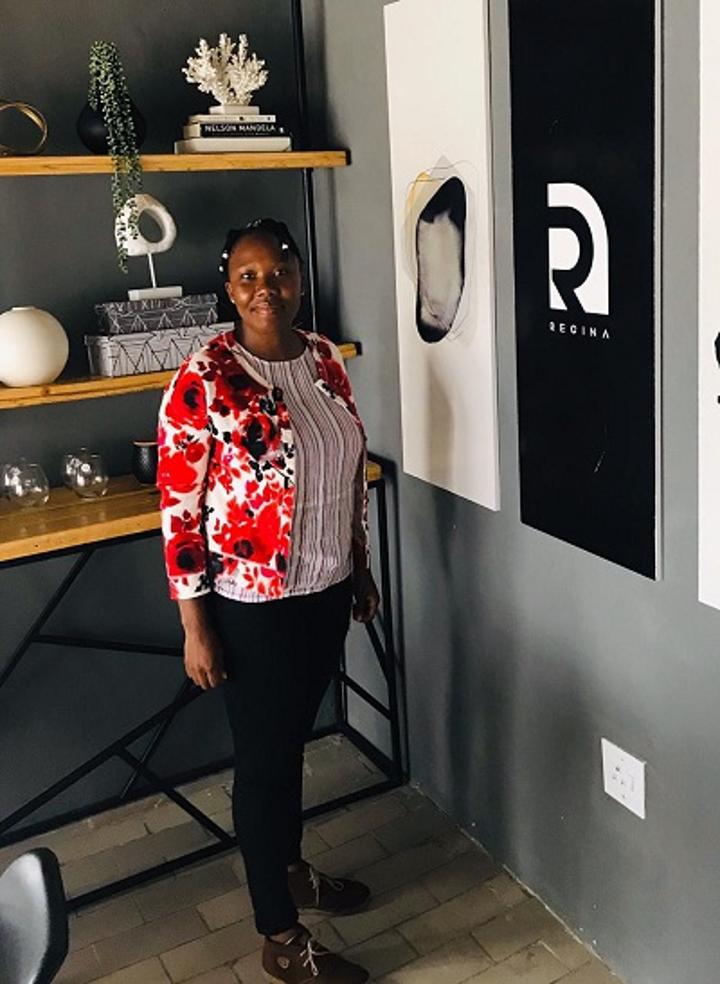Africa-Press – Lesotho. According to the “Hidden impact of Covid-19 on children – a global research series”, which is the largest and most comprehensive study on the impact of COVID-19 on children by Save the Children,
the pandemic response measures which are impacting children’s health, nutrition, education, learning, protection, wellbeing, family finances and poverty have the potential to be life-altering and potentially devastating for
the most marginalised and deprived children. These impacts have affected the global community, posing a great threat to education. Informative Newspaper Reporter Sebabatso Rannyama had an exclusive interview with
Network of Early Childhood Development of Lesotho (NECDOL) National Coordinator Shoeshoe Mofokeng, to gather information on what possible effects the global pandemic might have on early childhood education.
Please tell us about yourself and your
role in the ECCD centres or NECDOL. My name is Shoeshoe Mofokeng, I hold a Master’s Degree in Social Work form the University of Stellenbosch. I have more than 10 years of working experience in
Early Childhood Care and Development (ECCD) in its different sectors, respectively Health, Social Development and Education. I have experience in managing programs, successfully coordinating project implementations,
conducting research, participating on different levels of advocacy especially in early childhood education. I am also a mother to a young boy. My role with NECDOL began from 2016 when the Ministry of Education and Training,
held its first and only education symposium in 2016 with the support of Catholic Relief Services and the United Nations International Children’s Emergency (UNICEF).
A representative from African Early Childhood Network (AfCEN) gave a presentation on how other countries are working collaboratively to improve Early Childhood Care and Development through information sharing and
updating to avoid duplication of efforts. It was in this symposium where Lesotho’s Network was formed and I was selected to be deputy coordinator, and
in 2017 I was selected to be the National Coordinator where the Network got its first funding from UNICEF to roll out Early Moments Matter campaign and
increasing of early childhood education to achieve Sustainable Development Goal (SDG 4.2). Then in 2018 we worked on improving day care centres around factory
areas to improve conditions in which children spent the rest of their days while their mothers work in factories. This initiative is supported by Catholic
Relief Service. I am also leading in the implementation of the school readiness initiative project by Roger Federer Foundation in collaboration with the Ministry
of Education and Training. My role in NECDOL is also to conduct advocacy campaigns on investing in early childhood care and development by the government and parents
and this we are doing in partnership with Zimbabwe and Malawi through the Global Partnership for Education (GPE) where we focus on budget allocation for pre-primary and early years of primary education.
How has Covid-19 affected children’s
educational foundation? According to UNICEF and many other studies done, human brain develops by 80% between the ages of 0-3 years and it has been indicated that the solid foundation of
education begins at 2 and half years. Children who have attended pre-school have higher chances of completing their education regardless of many challenges
they may face in life, while children who have not attended pre-school have less chances. Heckman 2000 has also indicated that Pre-primary education is an
opportunity to break the cycle of poverty which many children in Africa are trapped in. In Lesotho, education sector analysis of 2018 has indicated that only around 35%
of children attend pre-primary education and with covid-19 where schools were closed this number has obviously decreased drastically where few schools were
able to provide pre-school and early primary (class 1-3) children online education. Even for other schools which tried sending school work through emails and WhatsApp, it required that parents should have a certain level of
education so they may assist their children, have data to download and upload their children’s work and most importantly be patient to assist their children to
learn. Even though this may seem like its nothing it has widened the gap of education which is already wide in Lesotho. The impact of what is currently happening may not be visible now but it will be in the next 10 years.
What are challenges faced by rural
children in context with Covid-19 compared to those living in the urban areas? Unfortunately, there is not much data that we can use to support this notion in Lesotho, but
we can assume that children in the urban areas have access to different forms of media which provides them with information to learn from. But as for children in rural areas, not many radio’s reach communities in the rural areas,
electricity is not available for everyone so they have less access to television and not many parents have smart phones. This we can assume it puts children in urban areas at a better chance to learn and therefore creates education gap. This in the long run will clog the education system in that those in rural areas will not succeed.
What possible measures can be
implemented to curtail the situation given that some parents and guardians are not learned? There is a need to invest in infrastructure and technology, as radio and TV
programmes can assist children to learn. There is also a need to formulate peer to peer education groups where older children can take responsibility of assisting younger children to learn. Long distance learning has to be improved at all levels to cater for emergencies such as this.
It is believed that reception instils
education in children, how does the global situation counter with this believe? At pre-school years, children’s education is based on five pillars which are; Emotional
Growth, Physical Growth, Spiritual and Moral Growth, Social Development and Intellectual Development. These pillars are used to make a child understand the value of education and the importance
of living harmoniously with others. Globally this notion has been put in consideration that is why we have SDG 4.2 that states that by 2030, we should ensure that all girls and boys have access to quality early childhood care and pre-primary education so that they are ready for primary education.
Apart from the halt in education, what
other impacts come with staying at home and how can those be overcome? We fear that many children may not have access to health services due to their
parents fearing to go to health facilities, in fear that they may be infected with Covid-19 and if children miss their immunization, they may infect other
children which is one of the negative impacts of Covid-19 which we need to deal with soon. Due to Covid-19, parents have lost their jobs and this has increased levels of
poverty in families, increased poverty means poor nutrition. Parents losing their jobs has also increased their stress levels and this has increased cases
of Gender Based Violence (GBV) which children are unfortunately witnessing at home while some are primary victims as they are also physically, sexually and
emotionally abused. The above challenges can be overcome with the government investing in its nation and not letting people loot funds. There is need to invest more in agriculture
which will support in good nutrition and income through exporting of our own produce. There is need to learn how to reserve food for dry days. Lesotho has
lots of peaches and its one of the produce which we should be exporting. Schools also need to be open as they provide temporary safe haven for children, as well
as nutrition as some children probably get the chance to get a balanced meal from what they eat at school. They are also safe from having access time where
they end up playing in dangerous places such as dams where they drown. Lesotho has a help line 116 where those who are suffering from abuse can get assistance.
There is a need to ensure that people are aware of this number so they can seek assistance. Children and Gender Protection Unit within the police service should be provided with resources to work on cases, and the courts should not be lenient on cases of abuse on children.
Provided the world lives with Covid-19
for the longest time, what can you suggest should be the new normal that caters for quality education? The government needs to implement the recommended investment where it is
recommended that it invests 3% of its Gross Domestic Product (GDP) in education, and that there should be more investment in Early Childhood Education as this is what developed countries do and Heckman’s theory and
articles prove that it works. Countries that invest more in early childhood education have fewer adults who need social assistance, therefore fewer adult’s dependent in the government for survival.
For More News And Analysis About Lesotho Follow Africa-Press






